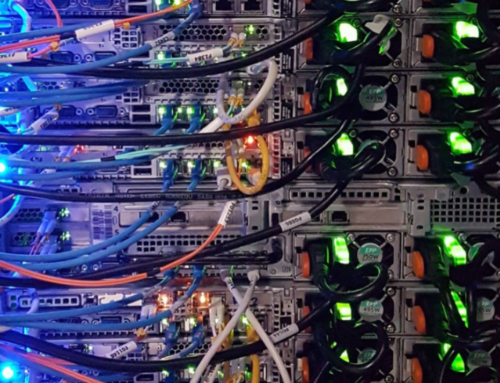Effective energy management not only reduces environmental impact but also drives efficiency, a crucial advantage in an increasingly competitive industry. Here are the latest advancements in data center energy management and why implementing these practices is vital for long-term operational success.
Understanding the Importance of Data Center Energy Management
Data center energy management involves strategically monitoring and controlling energy use across a facility’s infrastructure. According to the U.S. Department of Energy, data centers account for approximately 2% of the total electricity consumed in the United States, with demand set to grow as digitalization continues to accelerate. This figure highlights the importance of energy-efficient practices in data centers, not only to reduce operational costs but also to help organizations achieve sustainability goals.
The environmental impact of data centers is substantial, and managing energy efficiently can significantly lower a business’s carbon footprint. By optimizing cooling systems, using energy-efficient hardware, and employing advanced energy monitoring tools, companies can create a robust energy management plan. The growing emphasis on sustainability in the tech sector further reinforces the need for efficient energy use, as organizations recognize the potential to reduce greenhouse gas emissions while enhancing operational efficiency.
The Role of Technology in Enhancing Energy Efficiency
Recent technological advancements have transformed data center energy management, especially through the integration of artificial intelligence (AI) and machine learning (ML). These technologies allow for predictive analytics, helping data centers forecast energy consumption patterns and optimize resource allocation. Improving energy efficiency is about more than just reducing usage; it’s about facilitating the next generation of technology, from AI applications to edge computing.
By investing in state-of-the-art energy management software, such as those provided by LDP Associates, organizations can access real-time insights into their energy consumption. This allows for proactive adjustments, enabling teams to reduce energy waste and improve operational performance. Technologies like thermal mapping, automated cooling management, and predictive maintenance systems are also reshaping how data centers optimize energy use, helping operators create a stable, sustainable environment for high-performance computing.
Best Practices for Effective Data Center Energy Management
Adopting best practices in energy management is crucial for data centers aiming to improve both efficiency and sustainability. Here are some key strategies that LDP Associates recommends organizations implement:
Regular Performance Assessments: Routine energy audits are vital for identifying inefficiencies. By conducting regular evaluations, data centers can pinpoint energy-draining areas and implement improvements. These assessments provide the data needed to set measurable efficiency goals, a core component of any effective energy management strategy.
Investing in Energy-Efficient Equipment: Data centers benefit greatly from energy-efficient hardware, including high-efficiency power supplies and advanced cooling systems. Upgrading to energy-saving servers, storage units, and power distribution units (PDUs) can reduce total energy usage substantially. Efficient cooling systems, such as those that incorporate liquid cooling, can further enhance energy savings and reduce the need for large-scale HVAC systems.
Employee Training and Awareness: Building a culture of sustainability within the organization is essential for long-term success. Training staff on energy conservation practices, such as optimizing server loads or ensuring systems are in low-power mode when not in use, fosters an energy-conscious workplace. Employees who understand the impact of their actions on energy consumption are more likely to contribute positively to the organization’s energy goals.
These best practices not only reduce operational costs but also prepare data centers to meet evolving industry standards and regulatory requirements. The benefits of these efforts are twofold: data centers become more resilient and cost-effective, and businesses can demonstrate their commitment to environmental responsibility.
The Future of Data Center Energy Management
Data center energy management is no longer a secondary consideration; it’s now a core component of business strategy and sustainability efforts. As global energy demands increase, implementing energy-efficient practices in data centers is essential for maintaining a competitive edge and reducing environmental impact.
Embracing these advancements and best practices positions data centers to meet the challenges of tomorrow, from supporting emerging technologies to reducing operational costs. Organizations that invest in energy management solutions today are not only future-proofing their operations but are also aligning with the broader movement toward sustainable business practices.
If you have additional questions about optimizing your data center’s energy management, contact LDP Associates today to connect with our expert team!






